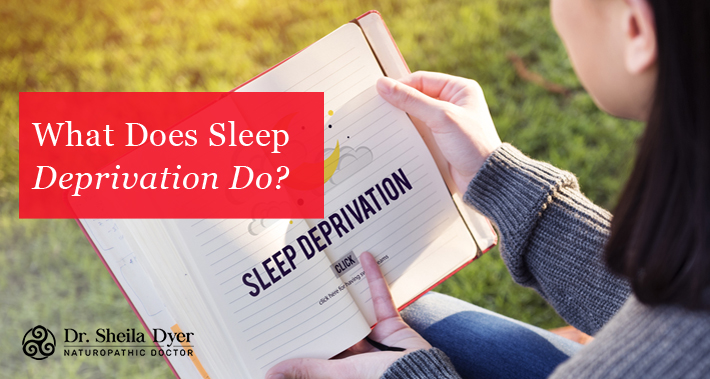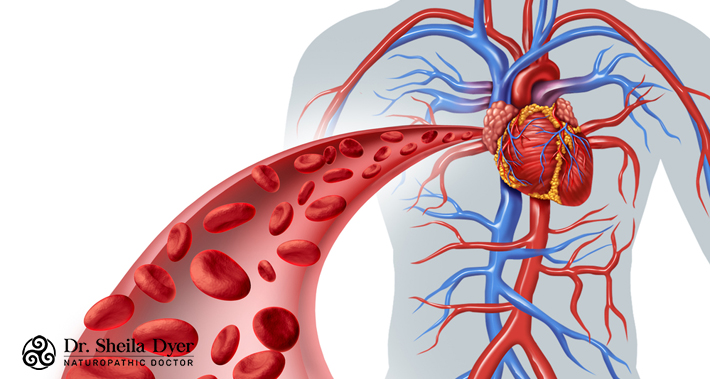Everyone has a rough night’s sleep from time to time.
Whether it’s from nighttime worries, working late, or a cup of coffee too late in the day, tossing and turning all night is no fun.
Sleeping poorly from time to time is unlikely to cause any long-term repercussions, but what happens when you miss a lot of sleep?
Sleep deprivation is caused by missing out on sleep long term, generally meaning less than seven hours a night, and overtime can add up to have serious consequences for your health.
In this article we’re going to talk about about the consequences of sleep deprivation so that you can get the help you need.
Why Do We Need To Sleep?
To understand what happens when we don’t sleep, it’s important to understand what happens when we do.
Sleep is vital to the function of every system in the body.
How sleepy or wakeful we are at a given time of day is regulated by the body’s circadian rhythms, or internal clock.
This cycle is regulated by both light exposure and buildup of the organic molecule adenosine that gets flushed out during sleep to reset the cycle.
While our conscious minds are resting during sleep, there’s still a lot of work happening in the body.
Sleep is prime time for the body to heal and perform maintenance tasks, while the brain processes information from the day into long term memory.
Without sleep the brain loses important time to rest, repair, and sort through information, and the body loses the chance to recover.
What Is Optimal Sleep?
It’s the idea of getting the best sleep you possibly can – including length and quality.
How much sleep you need depends on a number of factors, most notably age.
Young children need the most sleep, snoozing for fourteen to seventeen hours a day, while older adults need the least sleep at seven to eight hours.
For adults between 18 and 65, seven to nine hours of shut eye is the optimal range for sleep.
Missing out on at least seven hours of sleep a night can lead to some pretty serious cognitive consequences.
Sleep passes in cycles that last 90-120 minutes, and you tend to wake up feeling the most rested if you wake up at the end of a sleep cycle rather than in the middle of one.
What Happens During Sleep Deprivation?
Lack of sleep can mess with your body in a number of ways, even if you’re not aware of it.
Prolonged periods of sleep deprivation can lead to the development of tolerance for it, in which you may feel fine despite your brain and body suffering consequences.
Let’s talk about what happens to your body when sleep is scarce.
1. Your Hormones Are Affected
Hormone production is largely dependent on getting enough continuous sleep.
Testosterone production doesn’t begin until you’ve already been asleep for three hours, so interrupted sleep can also interfere even if overall you may be getting enough hours of sleep.
Growth hormones are produced throughout the day, but without sleep the levels produced drop.
This isn’t only relevant to children though; growth hormones are important for building muscle mass and repairing cells and tissues.
2. Your Digestive System Is Affected
One of the lesser discussed consequences of sleep deprivation is an increased risk of obesity.
The two major hormones that regulate hunger and satiety are leptin and ghrelin, both of which have their levels disrupted by lack of sleep.
This can lead to feeling hungry when you’re actually just tired.
This hormone fluctuation is also potentially responsible for bouts of late-night snacking.
Sleep deprivation can also leave you feeling too tired to exercise, which increases risk of obesity on its own.
Another hormone that depends on sleep is insulin, which lowers blood glucose levels.
Sleep deprivation can reduce the amount of insulin released by the body after you eat, increasing the risk for diabetes.
3. Your Immune System Is Weakened
Your immune system is your body’s defense system against all kinds of intruders.
From viruses and infections to injuries, your immune system is your best line of defence between your body and things in the outside world that could negatively impact your health.
The production of antibodies, which are essential to your immune system’s function, occurs while you’re asleep.
This means that sleep deprivation can weaken your immune system, so that it’s easier for you to get sick and takes longer for you to recover.
4. You Disrupt Your Central Nervous System
Your central nervous system is the command center for your body, and it’s the hardest hit system when you don’t get enough sleep.
Sleep is when your brain forms new pathways that allow you to form new memories and learn new behaviors.
Without enough sleep you may find yourself suffering from memory loss and impaired cognitive functioning.
After around 20 hours without sleep, the impairment is comparable to being intoxicated.
Prolonged lack of sleep can also lead to hallucinations, anxiety, paranoia, and depression.
If you go without sleep for long enough, your brain will take over sleep controls and you can start having microsleeps, when you fall asleep for a few seconds while doing a task.
This can be incredibly dangerous if you’re driving or operating heavy machinery when a microsleep hits, so if you get to that point it’s important to get yourself to a place where you can safely get to sleep as soon as possible.
5. You’re At Greater Risk For Heart Disease
Sleep plays an important role in the healing and maintenance of blood vessels and the control of inflammation levels.
All of these are helpful to keeping your heart healthy and missing out on sleep can increase your risk of heart disease and stroke.
It isn’t just total sleeplessness that can put you at risk, even sleeping six hours a night leaves you at elevated risk of heart disease.
This is in part because when you sleep, your heart rate slows which relieves some pressure on blood vessels and allows them time to recover.
Contact Dr. Sheila Dyer, ND
Struggling with sleep problems can be physically, mentally, and emotionally exhausting which can make it difficult to find help.
There are treatments and strategies available to help you manage your sleep and improve your health in the process.
I’m Dr. Sheila Dyer, a naturopathic doctor in Toronto and I want to help you overcome your sleep difficulties.
Make an appointment with me today to get started on your path to better health.
If you have questions about naturopathic medicine, or would like to start with your first consultation, contact me, and let’s book an appointment.
Dr. Sheila Dyer, ND1080 Dovercourt Rd,
Toronto, ON M6H 2X8
(416) 554-5135
► https://g.page/DrSheilaDyerNd
Dr. Sheila Dyer is a Naturopathic Doctor and a practicing registered nurse offering holistic healthcare with a scientific focus

